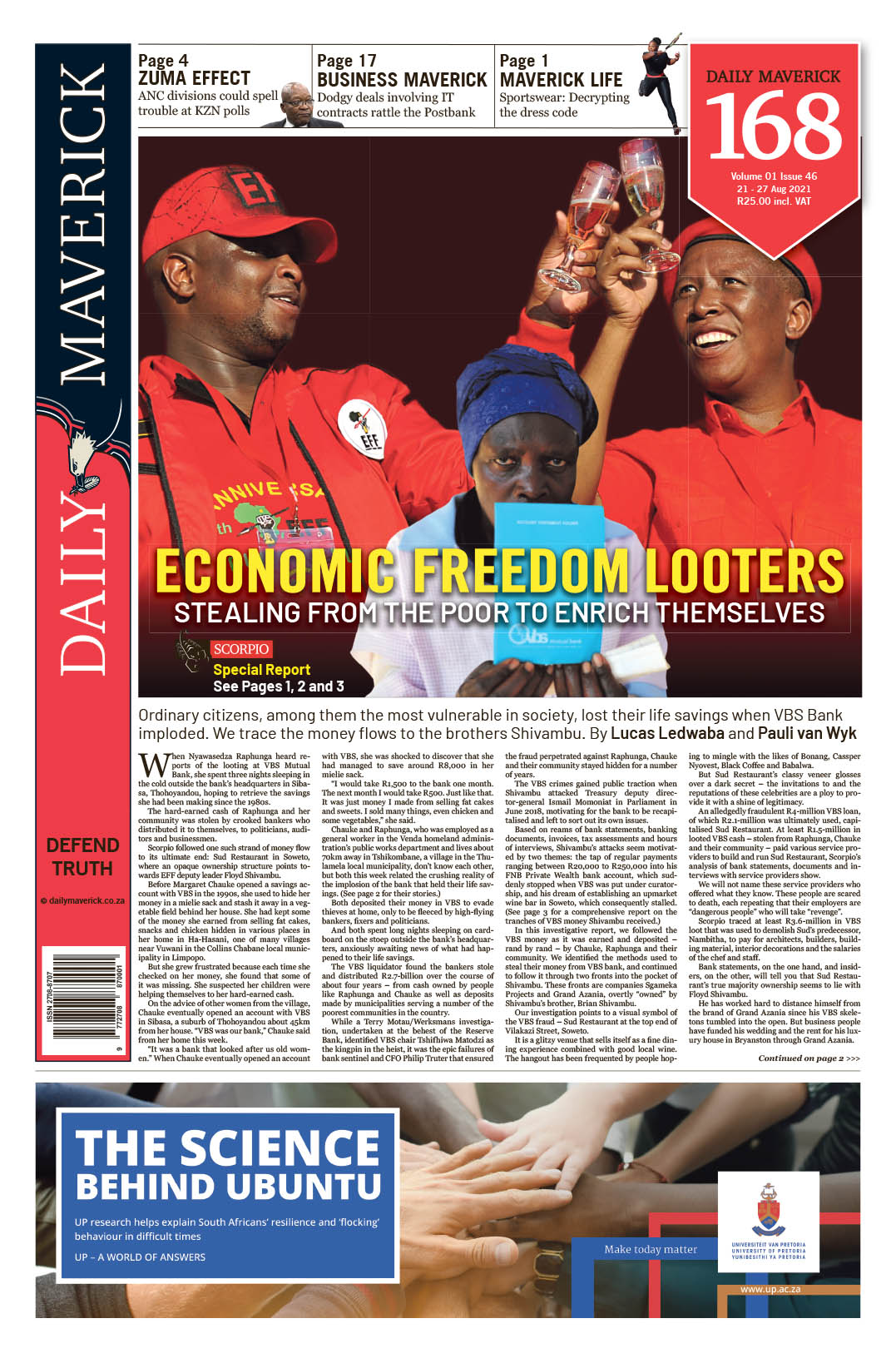First published in the Daily Maverick 168 weekly newspaper.
My back is to the camera, half-twisted, an elbow leaning out of the train window. My face turned from the plastic grey partition of the coach, gazing at the passing late-morning scenery you cannot see in the photograph.
What you can see are the insides of the scene: the back of my head, the half-combed frizz of hair, the hunching shoulders.
You can also see the brown T-shirt I’m wearing, greying in sunlit overexposure as if to compensate for the photographer’s loose technique, and the white-balance tiptoeing in and out of the scene between the echo of microseconds at the start and end of the “click”, rearranging strands of the spectrum to snatch at texture and sketch truthfully the shade of “overwashedness” of that beloved brown T-shirt.
If that photograph is grainy, it is a powder-soap graininess and a soap-water greyness. Bring your palms to your nose, and you can hear the running water of the yard’s best tap, and smell each of the 500 bubbling grams of Omo swaying from the shrivelled skin of your fingers.
Is it the eye that shivers as it beholds the photograph? Or is the photograph itself convulsing?
That South Africa is among the world’s most unequal societies has become painfully, and scandalously, passé. Why continue to state the obvious? The deepening of the situation seems inversely proportional to how much it occupies public conversation and the tone and urgency in which it is discussed. This may or may not be true about poor and unequal societies elsewhere.
And it is almost understandable, logical even, as a coping mechanism, allowing us to get on with the day and do what needs doing, without the risk of reliving the trauma and pain triggered by dwelling for too long on the topic.
More so if poverty has been your experience. Better to self-mythologise and plot a rags-to-riches Bildungsroman if you have been lucky enough to escape its clutches.
Speak of it, if you must, strictly in the past tense. You were both lucky and destined to rise above it. You studied, you hustled and you muddled your way to a better life. Others must do the same, mustn’t they? And what good will it do to keep talking about it, even if its spectre still lives inside your bones?
If you are still in it, well, your mouth has mostly been sewn shut for you. The structural violence of inequality and being poor, structural meaning many-headed and many-tentacled, weaponises shame and beckons you to join a cult of silence.
Yes, you can speak out – march, protest, scream in an opinion piece, petition – but these forms of speaking about poverty have also been procedurally pacified into empty ritual, another bullet point under the tawdry subheading: Vibrant Democracy.
Slogans seamlessly slide from picket signs to political campaign posters. Words accelerating in a void. Making us forget that ours is, or should have been, or will be, a deliberative democracy, where decisions about how to attain the public good are made in serious conversation with each other.
The catch is to speak up not only for ourselves, or to speak on behalf of others who cannot always speak for themselves, but also to speak about ourselves, in new and honest and even creative ways that drain the shame and politicisation from poverty.
The current moment, inflamed as it has been by the Covid-19 pandemic, and the flames that licked our TV screens for a week last month as they swallowed shopping centres and warehouses whole are flames that have been burning in and through informal settlements for a long, long time, and at protests in societies that are tired of not being heard.
They are fires that burn when words fail.
But the fires also reflect a depersonalisation of deliberation, something that South African sociologists John and Jean Comaroff call the “fetishism of the law” – the notion that legal instruments alone have the capacity to orchestrate social harmony.
In addition to, or as a prelude to, new economic policy and laws, and structures, we also need to tell and listen to each other’s stories, and, from there, write laws that reflect those experiences. DM168
This story first appeared in our weekly Daily Maverick 168 newspaper which is available for R25 at Pick n Pay, Exclusive Books and airport bookstores. For your nearest stockist, please click here.


















 Become an Insider
Become an Insider
Deliberate democracy now there’s a misnomer. If today’s stories are to be believed our democracy is nothing but an accident of circumstances.
Mfuneko, you write beautifully. More power to your pen.
Powerful writing. Thank you.
An excellent piece of writing on a topic that desperately needs to come out in the open. Properly. Poverty should not just be a tool that politicians and intellectuals bandy about. Acknowledgement is not enough, poverty must be engaged with for what it is, only then will we have any hope of tackling it.
I detect a touch of nostalgia, and a small hint of guilt at having lifted yourself out of the poverty trap and having left friends and family behind.
There is no shame in poverty. Hardship, yes. But not shame. Shame comes from the way you behave.
The notion of poverty is relative to the notion of wealth. The two extremes need each other to be defined.